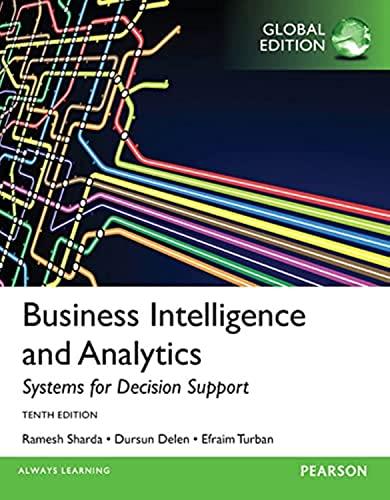The electrical power industry produces and delivers electric energy (electricity or power) to both residential and business
Question:
The electrical power industry produces and delivers electric energy (electricity or power) to both residential and business customers, wherever and whenever they need it. Electricity can be generated from a multitude of sources. Most often, electricity is produced at a power station using electromechanical generators that are driven by heat engines fueled by chemical combustion (by burning coal, petroleum, or natural gas) or nuclear fusion (by a nuclear reactor). Generation of electricity can also be accomplished by other means, such as kinetic energy (through falling/ flowing water or wind that activates turbines), solar energy (through the energy emitted by sun, either light or heat), or geothermal energy (through the steam or hot water coming from deep layers of the earth). Once generated, the electric energy is distributed through a power grid infrastructure. Even though some energy-generation methods are favored over others, all forms of electricity generation have positive and negative aspects. Some are environmentally favored but are economically unjustifiable; others are economically superior but environmentally prohibitive. In a market economy, the options with fewer overall costs are generally chosen
Questions for Discussion
1. What are the key environmental concerns in the electric power industry?
2. What are the main application areas for predictive modeling in the electric power industry?
3. How was predictive modeling used to address a variety of problems in the electric power industry?
Step by Step Answer:

Business Intelligence And Analytics Systems For Decision Support
ISBN: 9781292009209
10th Global Edition
Authors: Efraim Turban, Ramesh Sharda, Dursun Delen, Pearson Education Limited, Dennis G. Zill





